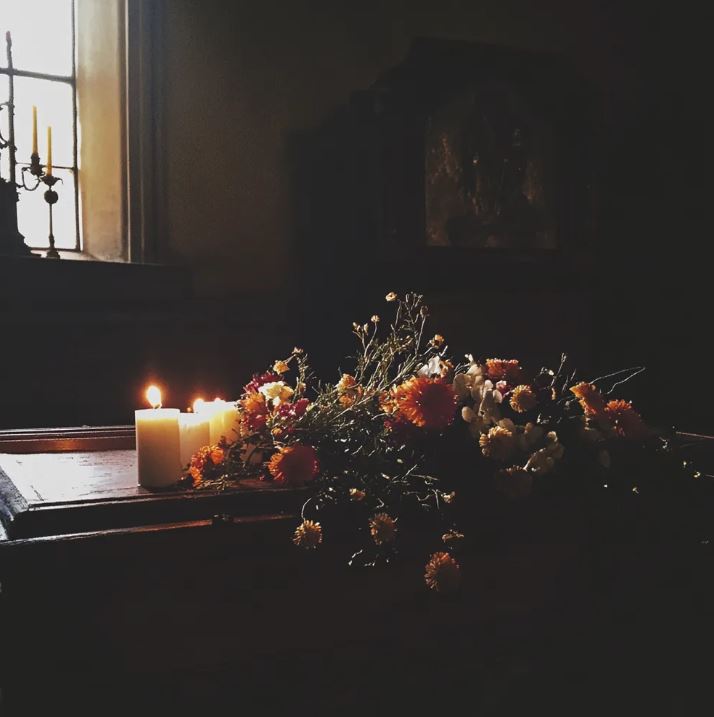I always thought family was supposed to mean safety, love, and belonging. For most of my life, though, those words felt more like fairy tales than reality. My mother made sure of that. She had two children, me and my younger brother, Julian. From the moment he was born, I knew my place in her heart had shifted. Or maybe it had never really been there at all.
Growing up, it was obvious Julian could do no wrong. When he spilled juice on the carpet, my mother laughed and called him “playful.” When I accidentally knocked over a vase while dusting, she scolded me for being “careless” and told me I’d never learn. He was praised for bringing home average grades, showered with gifts for simply existing, while I worked myself ragged to earn top marks, only to be told, “That’s what’s expected of you.”
I remember one Christmas when I was about twelve. My mother bought Julian a brand-new bicycle with all the bells and whistles. The thing gleamed under the lights of the tree like something out of a commercial. For me? She handed me a sweater two sizes too big and in a color she knew I hated. “You’ll grow into it,” she said flatly before turning back to fawn over Julian as he rode circles in the living room. That sweater hung in my closet for years, untouched, a silent reminder of where I stood in her world.
My father had passed away when I was six, so there was no buffer, no one to balance her favoritism. He’d been kind and warm, always slipping me an extra cookie after dinner or cheering at my smallest achievements. When he died suddenly of a heart attack, it was like the last line of defense crumbled, leaving me fully exposed to my mother’s coldness.

Still, I tried. I wanted her love so badly that I bent myself in every direction imaginable. I cooked dinners, helped with chores, and even defended Julian at school when he got into fights. Nothing worked. If anything, the more I gave, the less she seemed to notice. Julian, on the other hand, floated through life like royalty. By high school, he was already spoiled beyond measure. He had a car before he even had a license. He wore designer clothes while I shopped at thrift stores with the little money I made babysitting.
When I finally moved out at eighteen, it wasn’t with ceremony or support. My mother barely acknowledged it. She didn’t ask where I was going or if I needed help. She simply told me to lock the door behind me. I worked two jobs to pay for a cramped apartment, but I cherished every square foot because it was mine, and no one could take that away.
Years passed. I built a life piece by piece. I earned a degree in education while juggling night shifts at a diner. I became a teacher, not because it paid much, but because it mattered to me. I met people who valued me for who I was, not for how well I could cater to someone else’s whims. I even found love in a man named Patrick, who taught me what genuine kindness felt like. Still, despite all of this, there was always a lingering ache whenever I thought about my mother. Some part of me hoped that one day she’d see me—really see me—and realize what she’d done.
But she never did.
Julian, meanwhile, lived the high life without earning it. He blew through money faster than he could ask for it, and my mother always supplied more. He had no stable career, no direction. When his relationships failed, she consoled him with expensive gifts. When he got into trouble with the law for reckless driving, she paid the fines without batting an eye. He was thirty years old and still acted like a teenager.
The breaking point came after my mother passed away. I won’t pretend her d.3.a.t.h devastated me the way it might have if we’d had a close bond. But grief is complicated. Part of me mourned the parent I never truly had, the relationship I longed for but never got. Another part of me felt a strange relief, like I could finally put the longing behind me. That illusion shattered the day her will was read.
Patrick came with me for support, his steady hand grounding me as we sat in the lawyer’s office. I expected little, but I thought—hoped—she might have left me something. Maybe not money, since she always acted like I didn’t deserve any, but perhaps a sentimental keepsake: my father’s watch, a piece of jewelry, even a handwritten note. Something to show that I mattered, at least in her final thoughts.
The lawyer cleared his throat and began reading. Every penny, every asset, every possession went to Julian. The house, the savings account, and the antiques passed down from our grandparents. All of it. For me? Nothing. Not a dollar, not a trinket, not even a mention. It was as if I didn’t exist.

Julian leaned back in his chair, smirking, like he’d won some kind of prize. He didn’t even glance at me. I sat frozen, my chest hollow, my ears buzzing. The lawyer’s words blurred together until I barely understood them. All I could think was, This is it. This is who she really was. Even in d.3.a.t.h, she had chosen him, the spoiled son who never lifted a finger, over me, the daughter who had spent years yearning for her approval.
Patrick squeezed my hand under the table, silently telling me not to crumble. And I didn’t. Not there, not in front of Julian. I stood up, thanked the lawyer with a calmness that surprised me, and walked out. Julian called after me, something smug about how he guessed I was finally out of the picture. I didn’t look back.
Outside, in the sunlight, I felt something break free. Years of striving, of begging for scraps of affection, of measuring myself against my mother’s impossible standards—all of it cracked apart. The betrayal hurt, yes, but it also clarified everything. I realized I didn’t need her recognition anymore. I never truly did.
That day, I made a choice. I walked away, not just from the will, but from the entire toxic web I’d been tangled in for so long. I cut off contact with Julian, deleted his number, and refused to hear updates from extended relatives. I let them all believe whatever they wanted about me. It didn’t matter. What mattered was carving out a life defined not by rejection, but by self-worth.
It wasn’t easy at first. Some nights I cried, mourning the fantasy of the mother-daughter bond I’d never have. Other times, anger boiled up, and I’d imagine confronting Julian, demanding he admit that he didn’t deserve a thing he’d been given. But slowly, the emotions settled. In their place grew something sturdier: peace.
I poured my energy into my marriage and my students. I discovered that children have an uncanny ability to sense sincerity. They knew I believed in them, and in return, they believed in themselves. I realized that, in some ways, I was giving them what I had always craved: encouragement, support, a sense that someone was proud of them.
Years later, when Patrick and I bought our first home together, I felt a joy deeper than anything money could buy. It wasn’t grand, but it was filled with warmth. We hosted friends for dinners, decorated the walls with photos of our travels, and planted a small garden in the backyard. Every flower that bloomed felt like proof that I had built something beautiful from the wreckage of my past.
I never regretted walking away. In fact, I came to see it as the most important act of self-preservation I had ever done. My mother’s final betrayal, cruel as it was, gave me clarity. She had freed me, in a way, by showing me exactly where I stood in her heart: nowhere. From that moment forward, I no longer wasted my energy hoping for what would never come.
Julian’s life, from what I occasionally heard through the grapevine, didn’t turn out as golden as he’d imagined. Money can’t buy responsibility or wisdom, and he burned through the inheritance in record time. The house fell into disrepair, the antiques were sold off, and his relationships crumbled one after another. It was sad, in a way, but I didn’t feel sorry for him. He had been given everything and learned nothing.
Me? I had been given nothing—and learned everything.
When people ask about my family now, I smile and tell them my family is the one I built: Patrick, my friends, my students, and the community I’ve nurtured. I don’t carry bitterness anymore, just the quiet strength of someone who walked through fire and came out whole.
My mother’s will left me nothing. But in the end, it gave me the final push I needed to claim the life I deserved. And that, I realized, was worth more than any inheritance.
